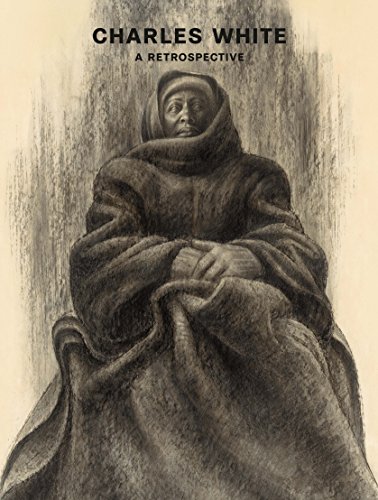Charles White: A Retrospective
A revelatory reassessment of one of the most influential American artists of the 20th century
Charles White (1918–1979) is best known for bold, large-scale paintings and drawings of African Americans, meticulously executed works that depict human relationships and socioeconomic struggles with a remarkable sensitivity. This comprehensive study offers a much-needed reexamination of the artist’s career and legacy. With handsome reproductions of White’s finest paintings, drawings, and prints, the volume introduces his work to contemporary audiences, reclaims his place in the art-historical narrative, and stresses the continuing relevance of his insistent dedication to producing positive social change through art.
Tracing White’s career from his emergence in Chicago to his mature practice as an artist, activist, and educator in New York and Los Angeles, leading experts provide insights into White’s creative process, his work as a photographer, his political activism and interest in history, the relationship between his art and his teaching, and the importance of feminism in his work. A preface by Kerry James Marshall addresses White’s significance as a mentor to an entire generation of practitioners and underlines the importance of this largely overlooked artist.
Charles White (1918–1979) is best known for bold, large-scale paintings and drawings of African Americans, meticulously executed works that depict human relationships and socioeconomic struggles with a remarkable sensitivity. This comprehensive study offers a much-needed reexamination of the artist’s career and legacy. With handsome reproductions of White’s finest paintings, drawings, and prints, the volume introduces his work to contemporary audiences, reclaims his place in the art-historical narrative, and stresses the continuing relevance of his insistent dedication to producing positive social change through art.
Tracing White’s career from his emergence in Chicago to his mature practice as an artist, activist, and educator in New York and Los Angeles, leading experts provide insights into White’s creative process, his work as a photographer, his political activism and interest in history, the relationship between his art and his teaching, and the importance of feminism in his work. A preface by Kerry James Marshall addresses White’s significance as a mentor to an entire generation of practitioners and underlines the importance of this largely overlooked artist.


![Apple Watch Series 8 [GPS 41mm] Smart Watch w/Silver Aluminum Case with White Sport Band – S/M. Fitness Tracker, Blood Oxygen & ECG Apps, Always-On Retina Display, Water Resistant](https://www.white-gifts.com/wp-content/uploads/2023/05/31sNv0RYxQL._SL500_-150x150.jpg)










